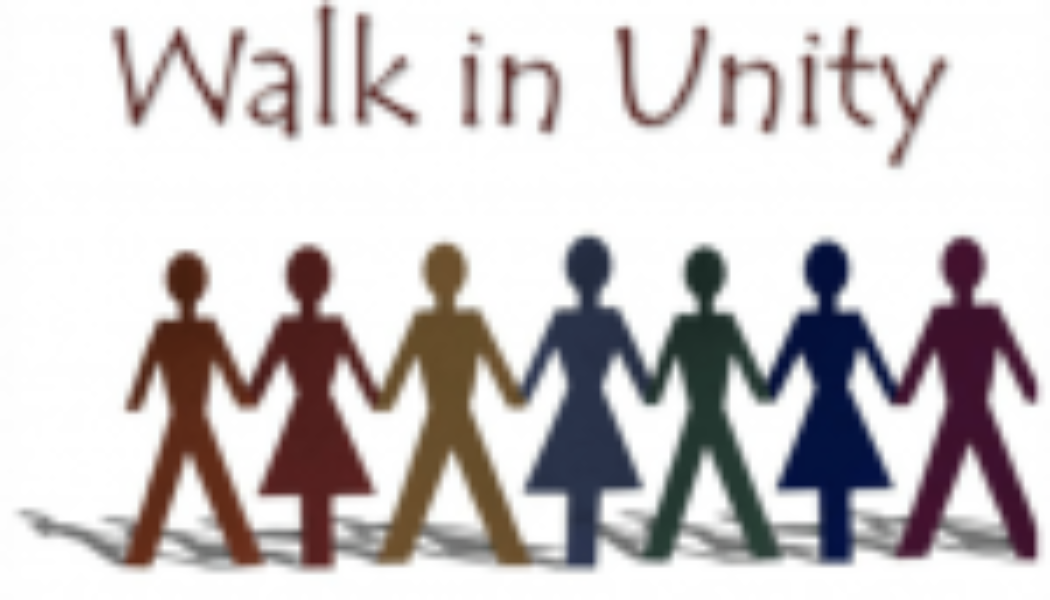peace
The Best Model for Church Growth (Ephesians 4:13)
Note: This study is from my book, God’s Blueprints for Church Growth. The Model for Church Growth (Ephesians 4:13) … till we all come to the unity of the faith and of the knowledge of the Son of God, to a perfect man, to the measure of the stature of the fullness of Christ … (Ephesians 4:13) My brother is an architect, and several years ago, the firm he works for was hired to design an addition to the largest church in town. During that time, I remember stopping into his office when the planning process was in its final stages. He was working on putting together a miniature chipboard model of what the church building would look like with the expansion. He was almost done with the model at the time, and I remember looking at it in awe. He had cut out all the windows. He had made ...
Seven Elements of Christian Unity (Ephesians 4:4-6)
In Ephesians 1-3, Paul explained that God has given us great spiritual riches so that we can lead the world into peace. In the first part of Ephesians 4, Paul tells us Christians that the first way we can show the world how to live in peace is by living in peace with one other. This begins, as we learned in the last study, by looking to our own heart first and developing certain attitudes of the heart. In this study, we learn that as we seek to live in peace with other Christians, we should focus on seven key truths that all Christians have in common. When we focus on what we have in common rather than on on what divides us, we will begin to create peace in our midst. Seven Elements of Christian Unity (Ephesians 4:4-6) As stated above, in Ephesians 4:1-3, Paul taught us to look to our own ...
The Church Must Lead the World into Peace (Ephesians 4:1-3)
Everyone wants unity, but nobody really knows how to achieve it. Most people today seem to think that unity requires conformity. We think that unity is achieved when everybody thinks the same way, talks the same way, dresses the same way, and has the same opinions. Where differences occur, division results, and unity dies. And some people seek to achieve unity by silencing and cancelling those who have different opinions. You see, when we are in a conflict with someone, we think it is the responsibility of the other person to change their ways, so we can get along with them. We point at their faults and what they said, or what they did, and say that if there is going to be peace, they have to change. Paul challenges all of this in Ephesians 4:1-3. In these verses, Paul shows how we can hav...
To Love Your Enemies, Know You are Loved (Ephesians 3:18-21)
Have you ever tried to actually love your enemies? It’s next to impossible, isn’t it? In Ephesians 3:18-21, Paul provides two ways that we can learn to love our enemies. These seem impossible as well, until we understand what Paul is actually saying about how to love our enemies. But before we look at Ephesians 3:19-21, I want to answer a question from a reader about Matthew 10:28 where Jesus says, “Do not fear those who kill the body but cannot kill the soul. But rather fear Him who is able to destroy both soul and body in hell.” Question from a Reader One of the members of my online discipleship group is taking my online course about hell, and had a question regarding Matthew 10:28. Here is what he wrote: Jeremy, I loved this course and it helped me out immensely, but I’m trying to figur...
Is it Impossible to love our enemies? (Ephesians 3:14-17)
In Ephesians, Paul has instructed his readers to live at peace with people they used to hate, and to begin loving their enemies instead. This is much easier said than done, so in Ephesians 3, Paul shows how he himself is doing this, and how his readers can follow in his example in loving their enemies, just as Jesus did. This is what we begin to learn in Ephesians 3:14-17. In Ephesians 3:14-17, Paul instructs his readers to do the impossible by loving their enemies. This is much easier said than done, so Paul provides three resources that God has provided to help us do the impossible. But first, we have two question from a reader about Jesus as the elect one, and how Jesus was morally perfect. Question from a Reader Here are two questions submitted by a reader named Michael Spina. I have a...
How to Fix the World (Ephesians 3:8-13)
Are you happy with the current state of the world? Do you wish things could change? Do you want the world to improve? Do you want to fix the world? In this study of Ephesians 3:8-13, we discover Paul’s solution for how to fix the world. It’s a shocking, challenging proposal, but it is the plan that God has put in place since the beginning of time, and it is the only plan that God has. There is no Plan B. Before we consider God’s Plan for How to Fix the World, we consider a question from a reader about Pentecostalism. Question from a Reader A new member of my discipleship group named John Redic recently sent in the following question. What is your analysis of Pentecostalism? How should the Azusa Street Revival and Movement be assessed and interpreted? I am not a fan of Pentecostalism. Don’t...
A Prisoner for Peace (Ephesians 3:1-7)
In Ephesians 2, Paul encouraged his readers to live in peace with people they used to hate. Since this is much easier said than done, Paul begins Ephesians 3 by showing how he himself is living in peace with those who used to be his enemies. Indeed, Paul is prison as a result of his stand for peace, but Paul knows that this will only serve to prove the truth of what he is teaching. Paul leads by example, just as we, the church, are to be an example to the world. This is what we begin to learn in this study of Ephesians 3:1-7. Prior to that, however, we consider a question from a reader about the traditional teaching on hell. Question from a Reader Hi, Jeremy! I would just like to ask because I still get anxiety over hell. What are we to do with testimonies about hell? Sometimes I think tha...
How Homeless Aliens Change the World (Ephesians 2:18-22)
Ephesians 2:18-22 is the final section in Ephesians 2 which shows us how God brings peace and unity to this world through the church. If we want peace and unity in this world, then it begins by living in peace and unity with other members of the family of God. Ephesians 2:18-22 shows us how this happens. Before we study this text, we consider a question from a reader about why he no longer senses God’s work in his life. Question from a Reader I’m 63 and I grew up in church. I used to do small things in the church. I would give out tracts and talk to people. I believe Jesus is the son of the living God and became human. I used to read my Bible all the time. But recently, I don’t get any spiritual understanding when I read the Bible. The Holy Spirit does not witness to me. I cry out to God t...
Vaccination Discrimination and Ephesians 2:13-17
Vaccinated or unvaccinated? Surprisingly, Ephesians 2:13-17 speaks to the issue. Sort of. In this study of Ephesians 2:13-17, we begin with a question from a reader about COVID vaccinations, and then turn to our ongoing study of Ephesians, where we discover that Jesus actually revealed to us what to do with people who have different views than we do, whether they are religious, political, social, or cultural differences, or even whether they are views about vaccination status. It’s going to be quite the study, so let’s dive in! We begin with a question from a reader about vaccination. Question from a Reader My pastor says that wearing a mask and getting a vaccine is a way to follow the command of Jesus to love my neighbor. I have some serious misgivings about the vaccine, but I want to fol...
The Things that Divide Us (Ephesians 2:11-12)
There were six things that caused division and strife between Jews and Gentiles. Paul discusses these in Ephesians 2:11-12. These same six things are found in various ways today in our culture and country. As we learn how Paul wanted the Ephesian Christians to respond to these sources of division, we can learn to live at peace with others today as well. All of this is covered in this study of Ephesians 2:11-12. Before we look at that, however, we consider a question from a reader about the difference between a believer and a disciple. Question from a Reader I have read over your page on the difference between a believer and a disciple more than once. Recently I have started reading the Bible again after not reading it systematically for a long time-I tried being a disciple when I was about...
What does it mean to be dead in trespasses and sins? (Ephesians 2:1)
Ephesians 2 is one of the most misunderstood and misapplied chapters of the Bible. This study provides a brief overview of how to understand Ephesians 2, and then takes a deeper look at Ephesians 2:1 as an introduction to the chapter. We also discuss a question from a reader about the problem of peace in the Middle East. Israel and the Palestinian Conflict I recently received this question from Aaron: Just listened to your recent podcast about Ephesians and with the comments as to the situation in Israel and Palestine. I found the two particularly contrasting – you seem to be so close and yet so far. Theologically, you are on the side which understands the immediacy of the kingdom of God and our participation in it in the here and now through loving our neighbors, and your understanding of...
We have Salvation in Jesus … but what is salvation? (Ephesians 1:9-13)
What is the mystery that was hidden for generations, but is now revealed in Jesus? And what is salvation? Is salvation when we get eternal life so we can go to heaven when we die? These questions will be answered in this study of Ephesians 1:9-13. We will also address the current violence in the Middle East between Israel and Hamas, and answer a question from a reader about Jesus’ statement from the cross, “My God, My God, why have You forsaken me?” Current Events: Israel and Palestine Hamas, the Palestinian terrorist organization, recently started launching rockets into Israel this last week. In response, Israel started shooting the rockets down and returning fire. It has been shocking to see how many people have responded to these events. Rather than condemning Hamas for launching the ro...
- 1
- 2























